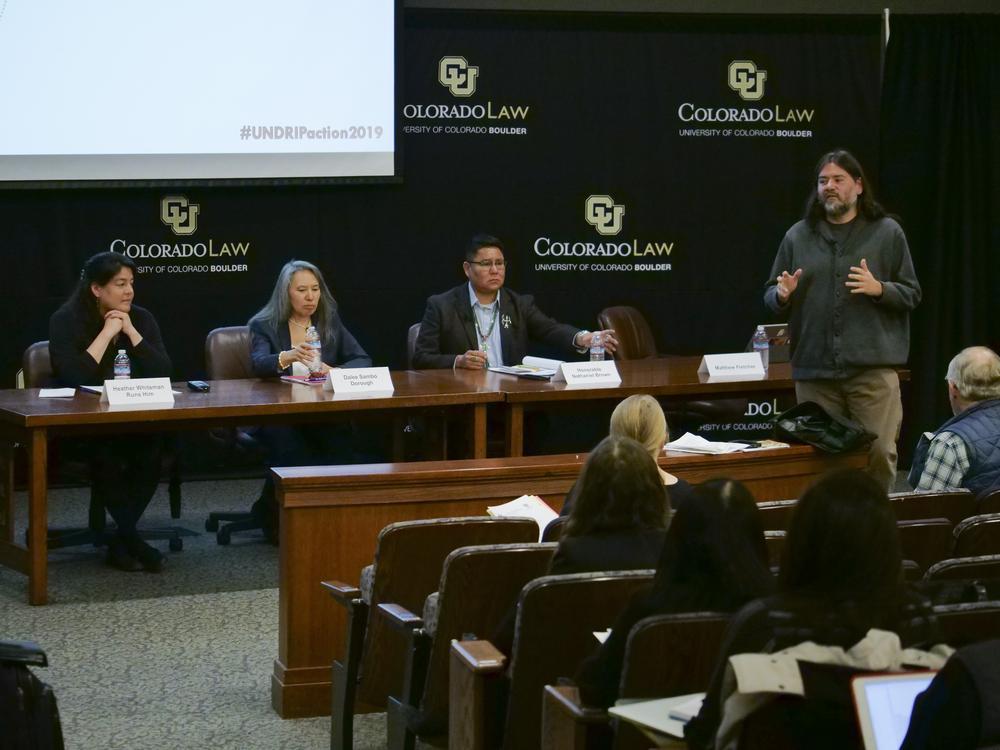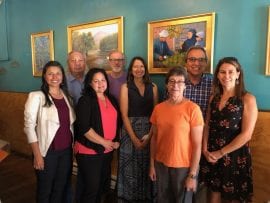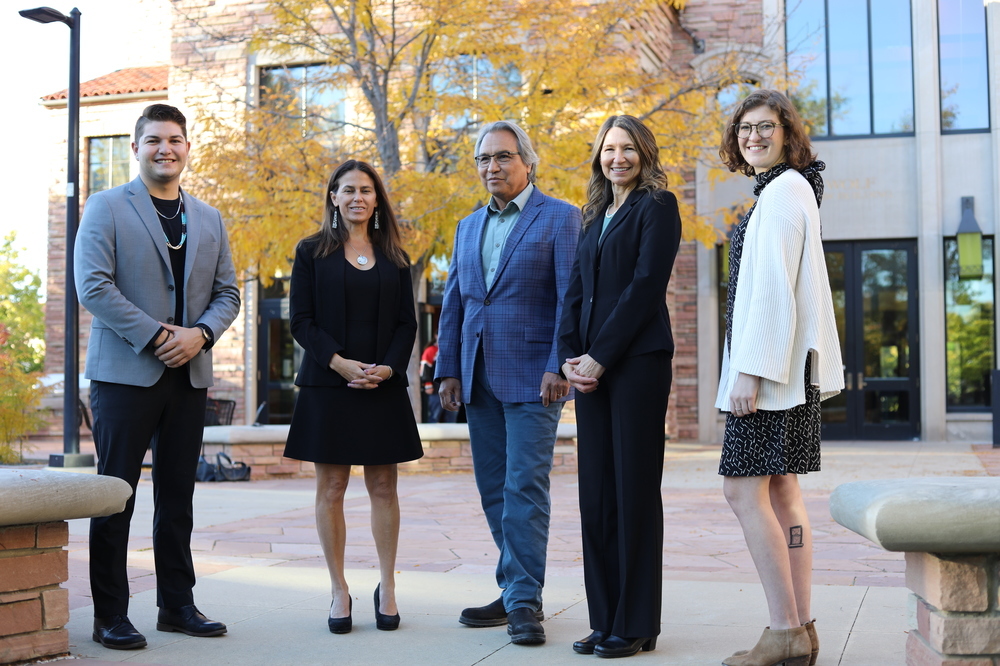After decades of advocacy by Indigenous Peoples, the United Nations General Assembly adopted the Declaration on the Rights of Indigenous Peoples in 2007. The Declaration can be an impetus for change, but it is only a framework. Implementation will require sustained effort. Laws and policies must change to fulfill the Declaration’s promises. To that end, NARF and the University of Colorado Law School (Colorado Law) created The Implementation Project. Find the latest news and updates from the project at https://un-declaration.narf.org/
About the Project
In 2007, following decades of advocacy by indigenous peoples, the United Nations General Assembly adopted the Declaration on the Rights of Indigenous Peoples.

Today’s challenge is to realize the promises of the Declaration in the lives of Indigenous Peoples. In 2018, Colorado Law and NARF committed to working on this challenge in the context of American Indian, Alaska Native, and Native Hawaiian rights. To that end, they co-sponsored a conference in 2019, at which attorneys, scholars, Tribal leaders, activists, students, and others discussed challenges in federal Indian law and the potential role of the Declaration in advocacy efforts. Collectively, this cohort considered advocacy opportunities in language rights, business and human rights, religious freedoms, cultural rights, Indian child welfare, climate change and environmental policy, and technology, media and communications.

The Implementation Project is a joint initiative of the Native American Rights Fund and Colorado Law to advance education and advocacy regarding the United Nations Declaration on the Rights of Indigenous Peoples. The Implementation Project (TIP) has multiple aims, including to foster awareness of the Declaration in Indian Country and to work closely with Indigenous leaders on implementing the Declaration in the United States.

The Project partners with non-governmental organizations, universities, and organizations in furtherance of Indigenous Peoples’ human rights, while advancing education about the Declaration. It also fosters relationships among attorneys, Tribal members, and others interested in the broader effort. While this is primarily a legal advocacy project, its participants include both lawyers and nonlawyers, some of whom are Tribal Nation leaders, traditional cultural practitioners, and members of Tribal communities. Indigenous Peoples’ lifeways, values, and knowledge always guide this project.
The project has produced a variety of resources for Tribal advocates seeking to implement the Declaration including The Indigenous Peoples’ Guide to the United Nations (2024) and the Tribal Implementation Toolkit (2021).
Visit The Implementation Project website to see the latest project actions.
Read about NARF’s other work with Indigenous Peoples at the United Nations.
More Cases

